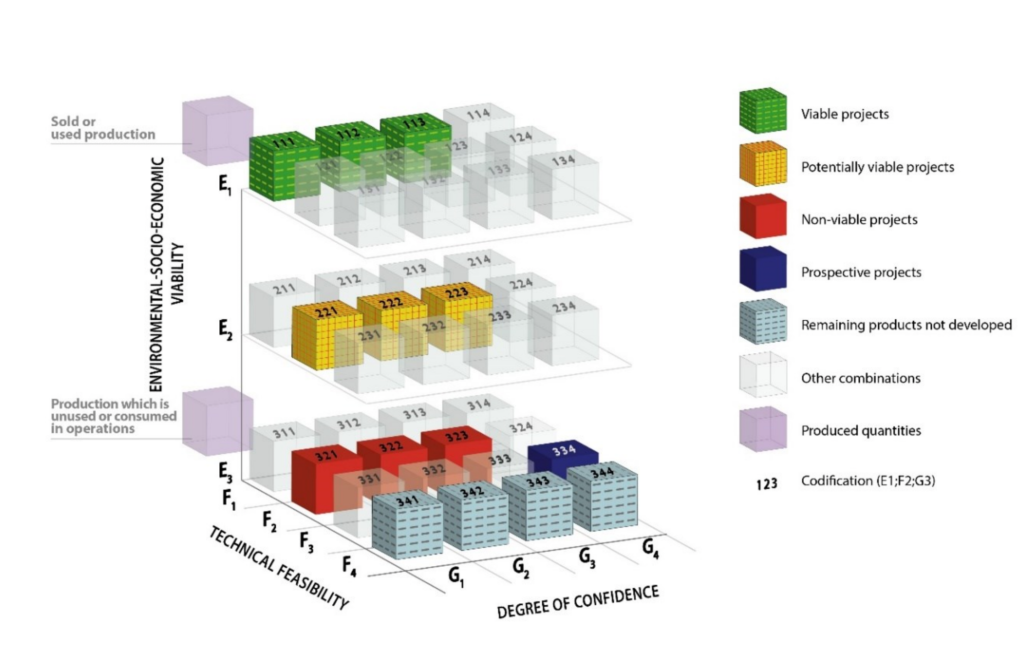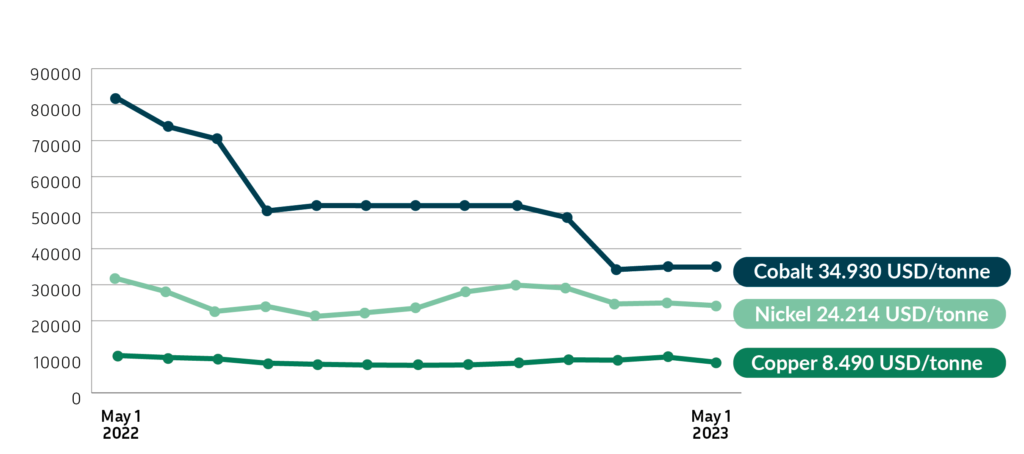7 June, 2023
Newsletter May
The year still holds some challenges and successes in store on our consistent path toward sustainable mining in Europe – for Europe.
But let me first look at the European Union's overall situation regarding the supply of raw materials. Even though there are vast amounts of mineral resources under our feet for the development of renewable energies, we still lack a holistic strategy to mine them. Therefore, we continue to remain dependent on China. Approximately 67% of imports of rare earth elements (REE) - to name just one of the most important groups of minerals in batteries - were imported from China last year. Given this high figure, one could quickly get the idea that China might be using the supply of raw materials as a geopolitical power tool. So how should we deal with this dependency? The EU Commission's answer is not decoupling, but rather a reduction in our dependence. That, among other things, could be done by the Raw Materials Act in the form of de-risking. The Commission's draft for the Critical Raw Materials Act (CRMA) is currently being processed in Parliament and the Council at an enormous pace. It could be possible that the application phase for the first strategic raw materials projects will start in the first quarter of next year. The European elections in the spring of 2024 create a timing challenge for the institutions, as they must either swiftly pass the legislation in early 2024 before the legislature ends or carry over the proposal to the new legislature. Until then, topics such as ESG standards, mining in protected areas, and financing instruments are up for discussion.
Developing Europe's future - with the right decisions and instruments
At this year's EIT Raw Materials Summit, the focus was once again on the influence of the CRMA on the European economy. The European mining sector has an enormous economic potential that needs to be realized. I see myself not only as CEO of a mining company but also in the role of bringing society closer to the fact that mining can be more responsible and "cleaner" than its bad reputation seems to tell. The EU knows that it must hurry up if it wants to keep up in the global race for raw materials. In the U.S., China, and many other countries, resource extraction is massively supported by public funds. On this topic, I recommend the report by Chalmers on behalf of the European Commission. Chalmers is one of the most influential technological universities in Sweden/Europe. The survey points out that with the current raw material production levels there will not be enough of rare metals in future – not even if recycling increases.
Predicate: Enlightening! In a meeting with Peter Handley (see photo), Head of the Resource Efficiency Unit at the EU Commission, we talked about the need for clear planning processes for decision-making and the need to improve the EU's ability to raise equity. There was also the question of how to create incentives for responsible mining projects in the future and thereby reduce risks. With Mr. Handley's political vision and my expertise, we were quickly on the same page.
Bottom line: The CRMA has been acknowledged by experts as a solid foundation, yet they unanimously believe that there is room for further enhancement. Hildegard Bentele, German MEP, member of the EU Industry Committee and frequently cited in our newsletters, emphasized the necessity for greater coherence within the law. Emphasizing the strategic importance of the Act is crucial, as it will provide an advantage in interpreting current laws concerning critical raw materials.
High UN award for our Hautalampi project

Our primary goal is to mine raw materials while taking environmental aspects and social responsibility for the local people into full consideration. I am therefore particularly pleased that our Hautalampi project has achieved the highest UN classification. Within the CRMA the United Nations Framework Classification for Resources (UNFC) is described as the primary system for reporting and harmonization tools for European raw materials projects. It is an international scheme for sustainable resource management of classifying, managing, and reporting of e.g., energy, mineral, and raw material resources to assist regional and national authorities in establishing and maintaining an inventory of primary and secondary raw materials projects.
Electrical power boost in Europe
What remained unclear for a long time now seems to become reality: Thanks to government support, the Swedish manufacturer Northolt may build its battery cell factory in northern Germany after all. CEO Peter Carlsson says the company has decided to "take the next steps in Heide." Carlsson had signaled some time ago that the construction could be delayed. He cited the comparatively high electricity prices in Germany and higher subsidies in the USA as reasons. Now things seem to be working out positively for Europe. So, from 2026, the first battery cells could leave the factory in northern Germany and more than 3,000 workers could find a future-oriented employer. In addition, I very much welcome the fact that a European company wants to defy the previous world market leader CATL. Contemporary Amperex Technology Co. is the largest Chinese manufacturer of lithium-ion rechargeable batteries.
More good news on the horizon: Batteries for e-cars will also be built in northern France in the future. Stellantis, Mercedes-Benz, and TotalEnergies are involved in the Gigafactory there. In four years, 2000 employees are to work in the factory of the ACC joint venture in Billy-Berclau. ACC plans to build two more battery factories in Kaiserslautern (Germany) and Termoli (Italy). This is the right way to go. I can only congratulate Northvolt and ACC on their decisions. Battery factories belong where the carmakers are. Another step towards independence, secure supply chains, and sustainability.

2022 in retrospective: the annual report
Progress for me means being able to make a decisive contribution to the green transformation. Therefore, I am happy to share, that we at Eurobattery Minerals AB took crucial steps in 2022 to realize our strategy to mine battery minerals responsible in Europe to power the electric vehicle and clean energy industry. Hence, I am pleased that we are currently experiencing the political tailwind through the CRMA that we need for the progress of our mining projects and that is indispensable for Europe's self-sufficiency. During 2023 the management and the Board of Directors are negotiating with various external parties and potential off-take partners to secure the company's financial capacity to develop and accelerate the company's project pipeline and to become a European mining and mineral raw materials supplier.
Recap of our first quarter in 2023
A few days ago, we released our first quarterly report for 2023. Here is a short summary of the most important points. If you would like to have a deeper insight, please check the full report on our website.
- Eurobattery Minerals announced the completion of the pre-feasibility study for its Finnish Hautalampi mining project.
- The company announced an additional 30% stake acquisition of FinnCobalt and the Hautalampi project.
- Hautalampi project’s environmental impact assessment update report was submitted to the North Karelia Centre for Economic Development, Transport, and the Environment for official review as part of the assessment.
- The company announced the first results from the new research partnership outlining new methods for large-scale extraction of rare earth elements (REEs), allowing nearly 100% REEs recovery in its Fetsjön project in Sweden.
- Eckhard Cordes, Chairman of the Board of Bilfinger and former member of the Board of Management of Daimler, as well as former Board member of Volvo, exercised warrants and will become a shareholder in Eurobattery Minerals.
As you can see, a lot is on the move. And Eurobattery is right in the middle of it. Being able to read the signs means being able to read the future. We have a clear plan on how we can help shape this future to our advantage. A lot has already been achieved. But there is still a long way to go. Let's walk this path to a cleaner and more sustainable future together.
Sincerely yours,
Roberto García Martínez, CEO

 Svenska
Svenska
 Deutsch
Deutsch